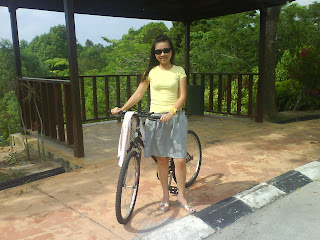http://www.newsabahtimes.com.my/nstweb/fullstory/22365
Dompok wants government to discard gas plan
12th October, 2008PENAMPANG: United Pasokmomogun Kadazandusun Murut Organisation (UPKO) is insisting that the government scrap the Petronas plan to construct a gas pipeline from the proposed gas landing at Kimanis to the LNG plant in Bintulu, Sarawak.
UPKO president, Tan Sri Bernard Dompok said that the Prime Minister had already announced a halt to the project during a gathering of Barisan Nasional (BN) leaders and government officers held here on May 31, this year.
He said that the announcement was well received by the party and government leaders.
“I thought that the matter would then be put to rest. But it was not to be,” said Dompok who also is a Minister in the Prime Minister’s Department.
He added that Petronas and its subsidiaries had completely disregarded the announcement made by the Prime Minister and stepped up the implementation of its plan.
“Who can blame anyone for losing confidence in the Prime Minister and the government when government companies themselves are consigning to the dustbin the government’s decision as announced by the Chief Executive of this country,” he said.
“I repeat today what I have told my cabinet colleagues. Petronas is countermanding the prime minister,” he said.
He urged the State Government to take charge of the issue and put a stop to it just as it did in the case of the coal-fired power plant proposed for Lahad Datu.
Dompok also proposed that the officials in Petronas who have dismissed with characteristic arrogance the policy direction announced by the Prime Minister to be surcharged for the expenses or losses incurred by Petronas since the project was stopped on May 31.
“This will prove that the country is serious in its pursuit of transparency and accountability. We have to be mindful of the perils of letting executives run government corporations at their whims and fancy. The havoc created by the executives of once profitable corporations in the US today should be a cautionary tale for all of us in government,” he said.
He cited four reasons why the party was adamant to have the project scrapped.
“First, this is an announcement by the Prime Minister on behalf of the government. If the words of the Prime Minister cannot be relied upon, all other decisions and promises made by the Prime Minister in respect of Sabah mean nothing at all,” he said.
He said the matter affects the integrity and the credibility of the government, the Barisan National as a whole and that they have a duty in the party to monitor the mandate and trust given by the electorate.
“Second, this is the opportunity for Sabah and its people to utilize its resources as the gas from the offshore fields can be used to start a petrochemical plant in Sabah, thereby providing stimulus to an economy that has become overly dependent on tourism and palm oil,” he said.
The oil and gas industry could provide employment for local jobseekers and opportunity for Sabahans to learn new trades or skills, he explained.
And third, Sabah despite her potential as the biggest supplier of crude oil has nothing to show for. The state has a known reserve of approximately 2.2 billion barrels out of 5.4 billion barrels (Sarawak 1.4 b, peninsula 1.8b) and 11.6stf of known gas reserve (Sarawak 43.9 scf and Peninsula 33.5scf).
“The other states including non-oil producing states have done better,” he said.
As examples, Dompok cited that Terengganu has a petroleum refinery, six gas procession plants, ethylene plant, polyethylene plant, Maleic Anhydride Plant and Aromatic Complex, while Sarawak has LNG Plants, LPG extraction facility, and ammonia/urea plants.
Dompok added that the available gas supply could be utilized by the independent power plants to put an end to the perennial power supply problem in the state.
“We need not debate endlessly about the coal-fired plants originally approved to be sited in Lahad Datu and since its cancellation the people of Sandakan have taken up arms against its proposed re-location to Sandakan. There really is no necessity for this controversy,” he said.
The gas pipeline could be redirected instead to Sandakan or Tawau or anywhere in the East Coast of Sabah to supply gas to power plants, he said.
“Not only would we solve an environmental problem, we would also spawn the growth of other industries. A Sabah gas pipeline to the East Coast can supply gas to the interior towns of Ranau or Keningau depending on where we want to relocate the power plants,” he said.
He added that Sabahans should be considered for some of the top managerial positions in Petronas.
“After more than 30 years of existence, can’t we produce even one single Sabahan to occupy one of the senior positions of Petronas and its subsidiaries? I do not think that there is no talent available here. Sabahans have done well in Shell. Sabah is after all a major stakeholder in the oil and gas industry,” he said.
At the same time, Dompok also touched on the oil royalty payment for Sabah and said that it was a mistake for Sabah to have agreed to yield to Petronas the rights to petroleum in the 1970s and to accept in return only five percent as royalty payment.
He added that they have brought up to the federal government a request for an increase in royalty but so far the government had been non-committal.
It had nevertheless recognized the funding requirements of Sabah as evidenced by the prime minister’s announcement of an allocation of RM1 billion, he said.
“This is an extra fund to the figure approved under the Ninth Malaysia Plan. This is a matter that the state government can take up further as the present Malaysia plan comes to a close and a tenth plan is drawn up.” he added.






















